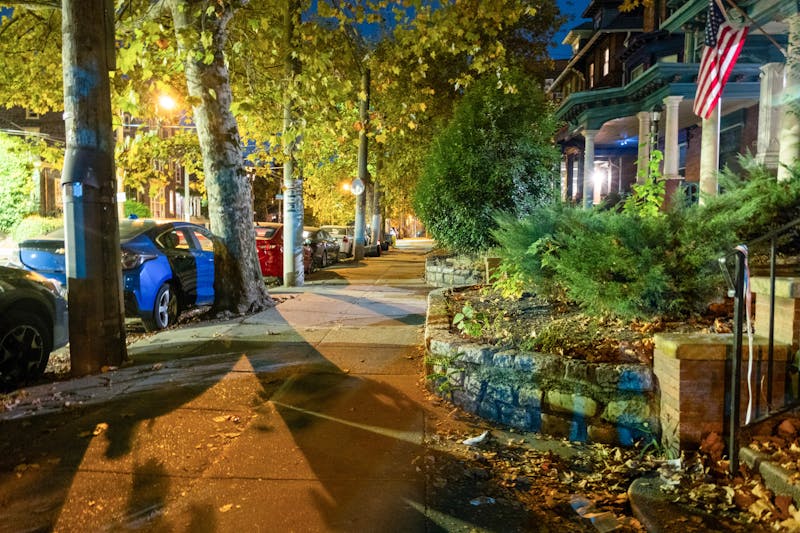
When Van Pelt Library preservation assistant and conservation technician Sibylla Benatova’s oldest son started kindergarten at the Penn Alexander School in 2014, she began donating selections from her 7,000-volume children’s book collection to his classroom.
“It became clear that it would be wonderful if they could have additional books in their libraries,” Benatova said. “And then I thought it would be much better if it’s not just one school but two schools in the neighborhood.”
This personal project has since developed into the A Book a Day project — an initiative Benatova started under the guidance of Will Noel, Penn Libraries’ director of the Kislak Center for Special Collections, Rare Books and Manuscripts — that donates 16 total books each month, eight to the Penn Alexander School and eight to the Lea School . This year, A Book a Day is donating an additional 30 books per school about instructing students on how to draw in response to an expressed desire for more art classes in the public schools.
The A Book a Day project is one part of Penn Libraries’ greater Community Outreach Program, which has expanded recently. Over the past two years, the program established a community outreach librarian , made collaborations with local nonprofits and increased the number of students it serves from 500 to nearly 6,000.
“It’s a natural extension of Penn Libraries’ mission,” Noel said. “We serve the faculty and the schools, but we’re a university embedded in a city, and we’re interested in the education of our constituents. It felt like a really good community thing that we can do.”
Penn Libraries works with the West Philadelphia Alliance for Children to help develop local public school libraries and Benatova has worked closely with WePAC volunteer Linda Kim, who has spent time with students at the Lea School’s library.
Kim said that the books from A Book a Day are often the ones selected to read to large groups when they come to the library, and, in response to the demand from the students, they often have to create waiting lists for students who wish to check out the books after they hear them read out loud.
“Particularly because we had a library that had been defunct for many years, we’re still really trying to build up the library’s collection,” Kim said. “There were many books that were old and tattered and the books that are published today look very different than the books from the ‘60s, and I think the kids immediately responded to that.”
When selecting books for the schools, Benatova initially focuses on art, music, poetry and science in order to develop visual literacy in young children.
“Art and poetry and music are not really heavily taught in the schools, so these books in a way bring them back to the student,” Benatova said. “Art teaches you to think in an abstract way, and whenever I select these books, I really am trying to find things that are really exciting and provocative and beautifully presented.”
Benatova said she has always made an effort to include books with characters that are racially and ethnically diverse, which Kim says “look[s] much more like [the] world in which the children at Lea Elementary live in as opposed to the books published in the ‘60s that are like white kids living in the suburbs.”
As of recently, Benatova has been selecting books specifically with an immigration theme.
“As a diverse school, with immigrant students, some that have just arrived in the last year, I can’t think of a more relevant topic right now for our school community, but also for our larger community in the context of what’s been happening,” Penn Alexander Principal Michael Farrell said. “And what a beautiful way to talk about it with kids, by using literature and children’s books.”
On every book donated through the A Book a Day project is a bookplate with an illustration of an apple tree with “University of Pennsylvania Libraries” across the top.
“When the kids see that a local library closely adjacent to the University is donating books to them,” Benatova said, “It might give them the idea that higher education is really possible; it’s something just around the corner; it’s something to really strive and look forward to.”
The Daily Pennsylvanian is an independent, student-run newspaper. Please consider making a donation to support the coverage that shapes the University. Your generosity ensures a future of strong journalism at Penn.
Donate






